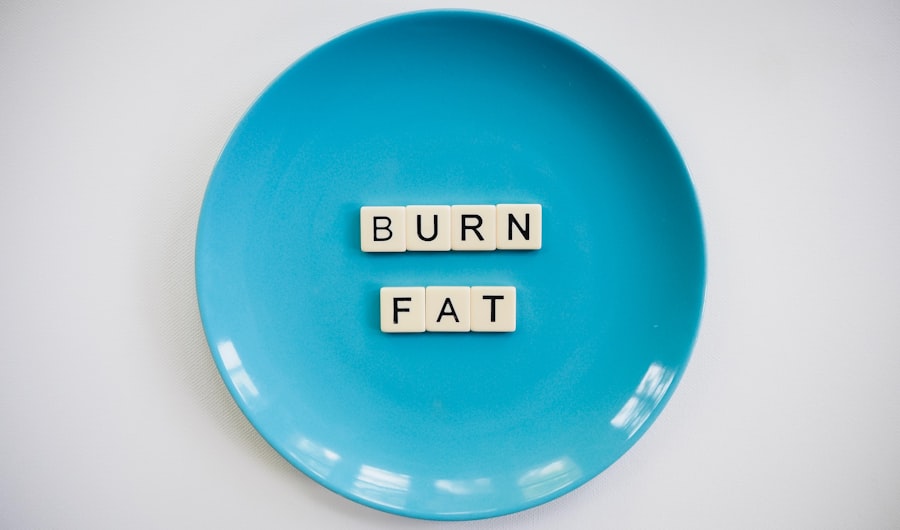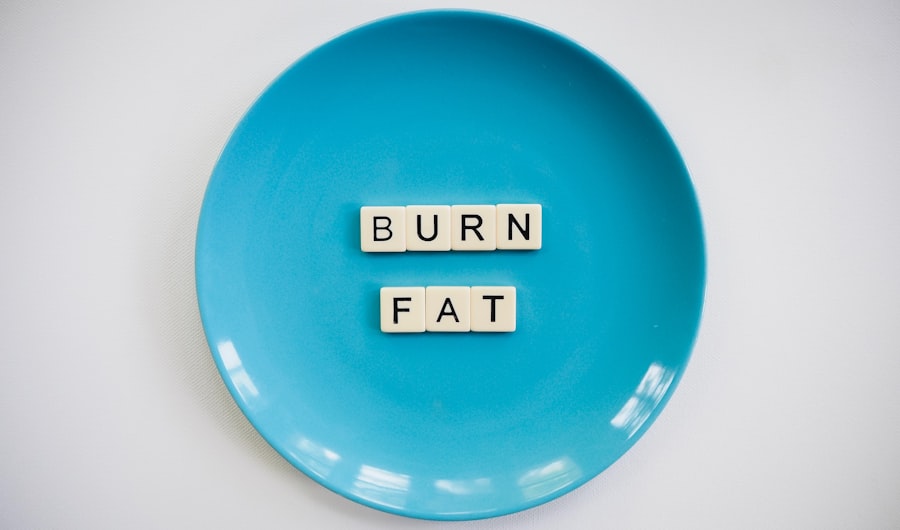As you age, maintaining your brain health becomes increasingly vital. The brain is the control center of your body, responsible for everything from memory and decision-making to emotional regulation and motor skills. Unfortunately, cognitive decline can be a common concern among seniors, leading to conditions such as dementia and Alzheimer’s disease.
Understanding the importance of brain health is essential for you to take proactive steps in preserving your cognitive abilities and overall quality of life. You may not realize that brain health is not solely determined by genetics; lifestyle choices play a significant role as well. Engaging in regular physical activity, maintaining social connections, and consuming a balanced diet rich in nutrients can all contribute to a healthier brain.
By prioritizing brain health, you empower yourself to remain independent and engaged in life, allowing you to enjoy your golden years to the fullest.
Key Takeaways
- Brain health is crucial for seniors as it can impact cognitive function and overall well-being.
- Healthy fats play a key role in supporting brain function and can help reduce the risk of cognitive decline in seniors.
- Seniors can benefit from incorporating healthy fats such as omega-3 fatty acids, monounsaturated fats, and polyunsaturated fats into their diet.
- Cooking with healthy fats can be easy and delicious, and can be done by using methods such as baking, grilling, and sautéing.
- It is important for seniors to avoid unhealthy fats and processed foods, as they can have a negative impact on brain health.
The Role of Healthy Fats in Supporting Brain Function
Healthy fats are crucial for optimal brain function, serving as building blocks for cell membranes and playing a role in neurotransmitter production. These fats are essential for maintaining the structure and integrity of your brain cells, which can help improve communication between neurons. When you incorporate healthy fats into your diet, you are not only nourishing your body but also providing your brain with the necessary components to function effectively.
Moreover, healthy fats can help reduce inflammation in the brain, which is linked to cognitive decline and neurodegenerative diseases. By choosing the right types of fats, you can support your brain’s health and potentially stave off age-related cognitive issues. Understanding the role of healthy fats in your diet is a vital step toward enhancing your overall well-being as you age.
Types of Healthy Fats for Seniors

When it comes to healthy fats, not all are created equal. You should focus on incorporating unsaturated fats into your diet, which can be divided into two main categories: monounsaturated and polyunsaturated fats. Monounsaturated fats are found in foods like olive oil, avocados, and nuts, while polyunsaturated fats include omega-3 and omega-6 fatty acids found in fatty fish, flaxseeds, and walnuts.
Omega-3 fatty acids are particularly noteworthy for their brain-boosting properties. They have been shown to support cognitive function and may even help protect against age-related decline. On the other hand, omega-6 fatty acids are also essential but should be consumed in moderation to maintain a healthy balance with omega-3s.
By understanding the different types of healthy fats available, you can make informed choices that benefit your brain health.
Incorporating Omega-3 Fatty Acids into a Senior’s Diet
| Benefits of Omega-3 Fatty Acids for Seniors | Recommended Daily Intake | Food Sources |
|---|---|---|
| Supports heart health | 1.1 grams for women, 1.6 grams for men | Fatty fish (salmon, mackerel, sardines), flaxseeds, chia seeds |
| May reduce inflammation | Walnuts, soybeans, canola oil | |
| Supports brain function | Fortified foods (eggs, yogurt, milk) |
Incorporating omega-3 fatty acids into your diet can be both enjoyable and beneficial for your brain health. Fatty fish such as salmon, mackerel, and sardines are excellent sources of omega-3s and can be easily added to your meals a couple of times a week. If you prefer plant-based options, consider including flaxseeds, chia seeds, or walnuts in your diet.
These foods can be sprinkled on salads or blended into smoothies for an extra nutritional boost. Another way to ensure you’re getting enough omega-3s is by considering supplements if dietary sources are insufficient. Fish oil capsules or algae-based supplements can provide a concentrated dose of these essential fatty acids.
However, it’s important to consult with a healthcare professional before starting any new supplement regimen to ensure it aligns with your individual health needs.
The Benefits of Monounsaturated and Polyunsaturated Fats for Senior Brain Health
Monounsaturated and polyunsaturated fats offer numerous benefits for your brain health as you age. Monounsaturated fats, found in foods like olive oil and avocados, have been linked to improved cognitive function and reduced risk of Alzheimer’s disease. These fats help maintain healthy blood flow to the brain, ensuring that it receives the oxygen and nutrients it needs to function optimally.
Polyunsaturated fats, particularly omega-3 fatty acids, have been shown to support memory and learning capabilities. Research suggests that these fats may help protect against cognitive decline by reducing inflammation and promoting neuroplasticity—the brain’s ability to adapt and reorganize itself.
Cooking Tips for Using Healthy Fats in Senior Meals

When it comes to cooking with healthy fats, there are several tips you can follow to maximize their benefits while keeping meals delicious. Start by using olive oil as your primary cooking fat; it has a high smoke point and is versatile enough for sautéing vegetables or drizzling over salads. You can also experiment with avocado oil for roasting or grilling due to its mild flavor and high heat tolerance.
Incorporating nuts and seeds into your meals is another great way to add healthy fats. You might consider adding chopped walnuts or almonds to oatmeal or yogurt for breakfast or tossing sunflower seeds into salads for lunch. Additionally, using avocado as a spread on whole-grain toast or blending it into smoothies can provide a creamy texture while boosting your intake of monounsaturated fats.
Avoiding Unhealthy Fats and Processed Foods for Senior Brain Health
While it’s essential to focus on incorporating healthy fats into your diet, it’s equally important to avoid unhealthy fats that can negatively impact your brain health. Trans fats and excessive saturated fats found in processed foods can lead to inflammation and contribute to cognitive decline over time. You should be mindful of reading food labels and steering clear of items that contain partially hydrogenated oils or high levels of saturated fat.
Instead of reaching for processed snacks or fast food options, consider preparing meals at home using whole ingredients. This allows you to control the types of fats you’re consuming while also ensuring that you’re nourishing your body with essential nutrients. By making conscious choices about the foods you eat, you can significantly improve your brain health and overall well-being.
The Link Between Healthy Fats and Reduced Risk of Cognitive Decline in Seniors
Research has increasingly highlighted the connection between healthy fats and a reduced risk of cognitive decline in seniors. Studies have shown that diets rich in omega-3 fatty acids are associated with better cognitive performance and a lower incidence of Alzheimer’s disease. By prioritizing these healthy fats in your diet, you may be taking proactive steps toward preserving your cognitive abilities as you age.
Furthermore, the Mediterranean diet—a dietary pattern high in healthy fats—has been linked to improved brain health among older adults. This diet emphasizes whole foods such as fruits, vegetables, whole grains, fish, nuts, and olive oil while minimizing processed foods and sugars. By adopting similar eating habits, you can create an environment conducive to maintaining cognitive function throughout your later years.
Supplementing with Healthy Fats for Seniors
If you’re concerned about meeting your daily requirements for healthy fats through diet alone, supplementing may be an option worth considering. Omega-3 supplements such as fish oil or algal oil can provide concentrated doses of these essential fatty acids without requiring significant dietary changes. However, it’s crucial to consult with a healthcare professional before starting any supplementation regimen to ensure it’s appropriate for your individual health needs.
In addition to omega-3 supplements, consider incorporating other sources of healthy fats into your routine. For instance, nut butters can be an easy way to add monounsaturated fats to snacks or meals without much effort. By exploring various options for supplementation and dietary inclusion, you can enhance your intake of healthy fats while supporting your overall brain health.
Lifestyle Factors that Support Healthy Brain Function in Seniors
Beyond diet alone, several lifestyle factors contribute significantly to maintaining healthy brain function as you age. Regular physical activity is one of the most effective ways to support cognitive health; exercise increases blood flow to the brain and promotes the release of beneficial hormones that enhance mood and memory.
Social engagement is another critical factor in supporting brain health. Staying connected with friends and family can help reduce feelings of isolation and depression while stimulating cognitive function through conversation and shared activities. Additionally, engaging in mentally stimulating activities such as puzzles, reading, or learning new skills can further enhance cognitive resilience as you age.
Consulting with a Healthcare Professional for Personalized Advice on Senior Brain Health
As you navigate the complexities of maintaining brain health in your senior years, consulting with a healthcare professional can provide invaluable guidance tailored specifically to your needs. A registered dietitian or nutritionist can help you develop a personalized meal plan that incorporates healthy fats while considering any dietary restrictions or preferences you may have. Moreover, discussing any concerns about cognitive decline with your healthcare provider can lead to early interventions or strategies that promote brain health.
They may recommend specific tests or assessments to evaluate your cognitive function or suggest lifestyle changes that align with your overall health goals. By seeking professional advice, you empower yourself with knowledge and resources that support optimal brain health throughout your later years. In conclusion, prioritizing brain health is essential as you age, and incorporating healthy fats into your diet plays a significant role in this endeavor.
By understanding the types of healthy fats available, making informed dietary choices, and adopting a holistic approach that includes lifestyle factors such as exercise and social engagement, you can take proactive steps toward preserving cognitive function and enhancing your overall quality of life in your senior years.
Incorporating healthy fats into the diet is crucial for maintaining optimal brain function, especially for seniors. These fats, such as omega-3 fatty acids found in fish, nuts, and seeds, play a significant role in supporting cognitive health and reducing the risk of neurodegenerative diseases. For more detailed information on how healthy fats can benefit senior brain function, you can read a related article on this topic by visiting Explore Senior Health. This resource provides valuable insights into dietary choices that can enhance mental acuity and overall well-being in older adults.
WATCH THIS!🧠 The Breakfast Mistake That Fuels Senior Memory Loss
FAQs
What are healthy fats?
Healthy fats are unsaturated fats that are beneficial for overall health. They can be found in foods such as avocados, nuts, seeds, and fatty fish.
How do healthy fats benefit senior brain function?
Healthy fats are important for senior brain function as they help to maintain the structure of brain cells, support brain communication, and reduce inflammation in the brain. They also play a role in improving memory and cognitive function.
What are some sources of healthy fats for senior brain function?
Some sources of healthy fats for senior brain function include avocados, olive oil, nuts (such as almonds, walnuts, and cashews), seeds (such as chia seeds and flaxseeds), and fatty fish (such as salmon, mackerel, and sardines).
How much healthy fats should seniors consume for optimal brain function?
Seniors should aim to include healthy fats in their diet on a regular basis, but it’s important to consume them in moderation. The American Heart Association recommends that healthy fats should make up about 25-35% of daily calorie intake.
Are there any risks associated with consuming healthy fats for senior brain function?
While healthy fats are beneficial for senior brain function, it’s important to consume them in moderation. Overconsumption of healthy fats can lead to weight gain and other health issues. It’s also important to choose healthy sources of fats and avoid trans fats and excessive saturated fats.
